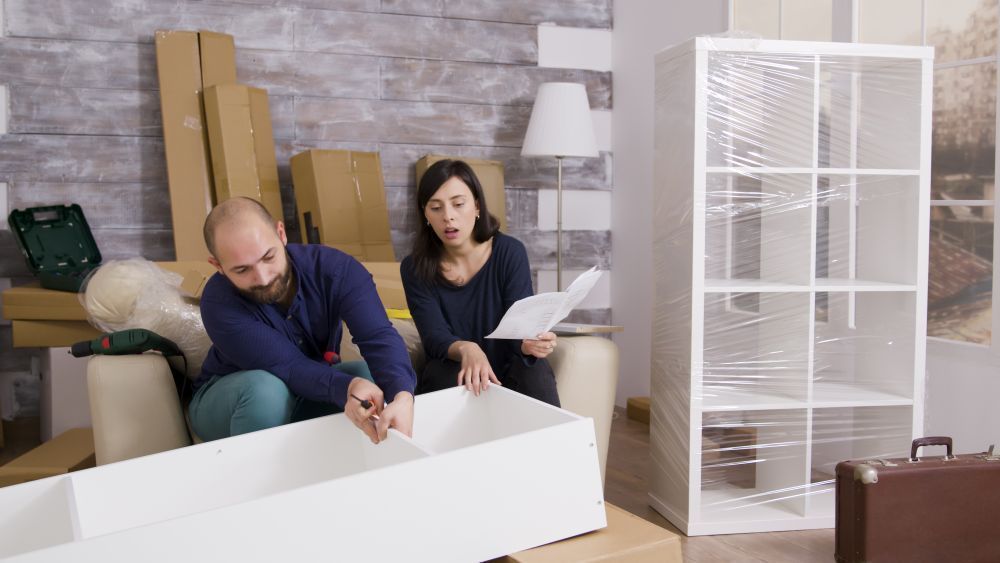What to Do When You Move to a New State - Complete Guide
Moving to a new state is a big step in your life. You need to take care of many important tasks to make sure everything goes smoothly. Moving to a new state can be an incredibly exciting time in your life. Maybe you are relocating to be closer to family, take a new job or benefit from a lower cost of living. This guide will help you know exactly what to do when you move to a new state.
In this article, you'll learn about all the key steps you need to take. We'll cover getting new ID cards, changing your voter info, setting up utilities, finding doctors, and much more. By the end, you'll feel ready to tackle your move with confidence.
Before You Move: Getting Ready
Plan Your Budget and Timeline
The first thing to do when moving to a new state is to start budgeting. The costs of moving can be high, especially when you're moving across state lines. Moving costs can add up quickly, so it's smart to plan ahead.
Here are common moving costs to think about:
- Professional moving company or truck rental
- Gas and travel expenses
- Packing supplies
- Storage if needed
- Deposits for new utilities
- New state ID and car registration fees
A good rule of thumb is to save enough to cover three to six months of living expenses in your new state. Include funds for unexpected expenses such as job gaps or moving costs.
Research Your New State
Before you pack up, learn about your new home state. Look into:
- Cost of living differences
- Job market in your field
- School systems if you have kids
- Healthcare facilities
- State and local taxes
- Weather patterns
- Local laws and rules
Major moves can be pricey. Have a realistic grasp on the costs involved. Consider the differences in the cost of living between your current state and the new state.
Official Documents and Government Tasks
Get a New Driver's License
Getting a new driver's license is one of your most important tasks. Each state has different rules about how long you have to get your new license.
Common timeframes:
- New residents are required to obtain a Texas driver license from the Texas Department of Public Safety within 90 days of moving to the state
- When you move to Virginia, you have 60 days to get a Virginia driver's license to legally drive here
- If you move to New York State and become a resident, you must get a New York State driver license within 30 days
- You have 30 days after moving to Washington to get your driver license and register your vehicle
You'll need to bring:
- Current driver's license
- Proof of identity (birth certificate or passport)
- Proof of residency (utility bill or lease)
- Social Security card
Many states now offer REAL ID licenses. According to the Department of Homeland Security , beginning May 7, 2025, the federal government will require you to show a REAL ID compliant driver's license or identification card, or another federally approved form of ID, in order to board a domestic flight or enter most secure federal facilities.
Register Your Vehicle
You also need to register your car in your new state. This usually must be done within 30-60 days of moving.
What you'll need:
- Current car title or registration
- Proof of insurance in your new state
- Driver's license from new state
- Emissions test (in some areas)
You have 30 days from the time you move here to register your vehicle in the state. Some states require emissions testing in certain counties, so check your local rules.
Registration fees vary by state. The base registration fee in Texas is $50.75 plus $1 for TexasSure, the electronic insurance verification program and other Department of Public Safety initiatives.
Update Your Voter Registration
As soon as you move, update your voter registration so you can participate in upcoming elections. Failing to do so may mean you can't vote when you arrive at the polls.
You can usually register to vote:
- Online through your state's website
- By mail
- In person at DMV offices
- At some libraries and government buildings
Check the voter registration deadline in your new state. In some states, you can register the same day you move, and in others, you must register no later than a month before an election date.
Address Changes and Mail
Forward Your Mail
Set up mail forwarding with the US Postal Service before you move. You can do this online or at any post office. Mail forwarding lasts for one year, which gives you time to update your address with everyone.
Update Your Address Everywhere
Make a list of all the places that need your new address:
- Banks and credit cards
- Insurance companies
- Employer or payroll department
- IRS and state tax agencies
- Social Security Administration
- Subscription services
- Online shopping accounts
- Friends and family
If you receive Social Security disability, survivors, retirement benefits, or Medicare, the Social Security Administration requires you to update your address as soon as possible through your online account or by calling their office.
Utilities and Services
Set Up New Utilities
Contact utility companies in your new area about 2-3 weeks before you move. Contact a new provider at least two weeks in advance of your move-in date. Many utility providers have a three-five day turnaround time, so you'll want to cushion the timing as much as possible, so you aren't without hot water your first week.
You'll need to set up:
- Electricity
- Gas
- Water and sewer
- Internet and cable
- Trash pickup
- Phone service
Don't forget to cancel your old utility services too. Set shut-off dates for after you move out.
Find New Service Providers
Research and find new providers for:
- Internet and cable companies
- Trash and recycling services
- Lawn care or snow removal
- Home security systems
Healthcare and Insurance
Health Insurance Changes
Moving to a new state often means you need new health insurance. According to HealthCare.gov , when you move out of state, you'll need to start a new Marketplace application and enroll in a plan in your new state.
What to do:
- It's very important to report moves out of state immediately so you can enroll in a new plan without a break in coverage — and avoid paying for coverage that doesn't apply in your new state
- Log into HealthCare.gov or your state's health insurance marketplace
- Report your move and start a new application
- Compare plans available in your new state
- Choose a plan and pay your first premium
Moving to a new state will trigger a special enrollment period as long as you already had coverage before your move. This means you don't have to wait for open enrollment to get new coverage.
Find New Healthcare Providers
When moving to a new city in a new state, one of your top priorities is to find a good doctor for you and your family – a highly-skilled and qualified specialist whom you can entrust with your most valuable thing in this and any other world – your health.
Steps to find new doctors:
- Ask for referrals from your current doctors
- Check with your new insurance to see which doctors are covered
- Use the abundance of online resources (for example, the American Medical Association) to locate the best doctor for your particular needs
- Get copies of your medical records from your old doctors
- Schedule checkups with new providers
Types of healthcare providers to find:
- Primary care doctor
- Dentist
- Eye doctor
- Specialists for ongoing health needs
- Local hospital and urgent care centers
Update Other Insurance
Contact your insurance companies to update your address and coverage:
- Car insurance (rates may change based on your new location)
- Home or renters insurance
- Life insurance
- Business insurance if you're self-employed
Taxes and Financial Matters
Understanding State Tax Changes
According to TurboTax , if you are considering moving to another state, you might want to consider states that do not have state income tax: Alaska, Florida, Nevada, South Dakota, Texas, Washington and Wyoming.
When you move to a new state, you may need to file tax returns in both your old and new states for the year you moved. You'll likely file a part-year resident return in both states.
Important tax considerations:
- To avoid double taxation, learn your state residency rules. This is especially important if you recently moved
- Keep records of when you moved (moving receipts, new lease, etc.)
- Update your address with the IRS
- Learn about any new state tax rules
Banking and Financial Accounts
- Update your address with all banks and credit unions
- Find local branches of your bank in your new area
- Consider switching to a local bank if needed
- Update automatic payments and direct deposits
- Notify credit card companies of your move
Children and Schools
School Enrollment
If you are moving with children, you will need to inform their current school about the move. When you enroll your children in their new school, transfer their school records as quickly as possible.
School transfer checklist:
- Research schools in your new area
- Contact your child's current school about transferring records
- Get copies of important documents (report cards, test scores, medical records)
- Register at the new school as soon as possible
- You may be able to arrange a direct transfer between the schools, which can save you time
Finding Quality Schools
Researching which communities have the best schools when moving to a different state can help you narrow down your options for where you want to live
Look for:
- School ratings and test scores
- Extracurricular activities
- Special programs your child might need
- Transportation options
Work and Employment
Job Search and Employment
If you don't already have a job lined up, start your search early. Prior to your move, research the area you plan to relocate to check for job opportunities in your desired industry. Verify the demand for your field and utilize platforms like LinkedIn and Indeed to discover available positions.
Job search tips:
- Research job markets in your new area
- Network with people in your new city
- It's always a good idea to see if there are any alumni networks or friends/family in your new state that may be able to give you a referral
- Update your resume with your new contact information
- Consider remote work options
Business Licenses and Professional Requirements
If you're a sole proprietor or a business owner, you may need to establish business licenses if you plan to do business from your new residence.
Some jobs require new licenses or certifications in your new state:
- Professional licenses (law, medicine, real estate, etc.)
- Business licenses
- Contractor licenses
- Teaching certificates
Research requirements early as some processes can take weeks or months.
Social Connections and Community
Making New Friends and Connections
Moving to a new state means building a new social network. Socializing, checking out local nightlife, getting to know your new neighbors! It can take a while to get settled in a new home, especially after a major out-of-state move.
Ways to meet people:
- Join local clubs or hobby groups
- Attend community events
- Visit local gyms or fitness centers
- Volunteer for causes you care about
- Join religious or spiritual communities
- Use social apps designed for making friends
Learning About Your New Community
- Find local grocery stores and restaurants
- Locate libraries, parks, and recreation centers
- Learn about local events and festivals
- Discover local news sources
- Find your nearest hospital and urgent care
- Knowing the best local restaurants around your new home will be helpful when you're taking a break from unpacking!
Special Considerations
Moving Timeline and Weather
If possible, schedule your move-in date when the weather is good. Driving a vehicle full of boxes can be especially dangerous in heavy rain or snow.
Plan your move timing around:
- Weather conditions
- School schedules (if you have kids)
- Work schedules
- Peak moving season (summer is busiest and most expensive)
Professional Moving Help
Hiring professionally trained movers when moving out of state will be beneficial. Moving can already be mentally stressful, the last thing you want to do is physically strain yourself and get hurt attempting to move heavy boxes and furniture.
Consider hiring professionals for:
- Packing and unpacking
- Loading and transportation
- Storage solutions if needed
- Specialty items (pianos, artwork, etc.)
If you're moving to or from the Edmonton area, professional movers can help make your interstate move much easier.
Maintaining Important Documents
Keep these documents with you during the move (not in the moving truck):
- Birth certificates
- Passports
- Social Security cards
- Marriage certificates
- Insurance policies
- Medical records
- Financial statements
- Moving contracts and receipts
State-Specific Considerations
Different State Laws
Research laws that might be different in your new state:
- Traffic laws and speed limits
- Alcohol and tobacco regulations
- Gun laws
- Pet regulations
- Business regulations
- Property laws
Climate and Lifestyle Changes
Moving to a new state often means adapting to:
- Different weather patterns
- New seasonal activities
- Different pace of life
- Regional customs and culture
- Local food and dining styles
Financial Planning for Your Move
Moving Costs Breakdown
According to recent industry data from HomeAdvisor , the average interstate move costs $4,800, which is why many interstate movers opt to tackle the daunting challenge of moving without professional help.
Typical moving expenses include:
- Moving company or truck rental: $1,000-$5,000+
- Packing supplies: $200-$500
- Travel costs: $200-$1,000
- Temporary lodging: $100-$300 per night
- New state fees (license, registration): $100-$300
- Utility deposits: $200-$800
- Immediate needs (groceries, essentials): $200-$500
Emergency Fund
Keep extra money available for unexpected costs that often come up during moves:
- Delayed utility connections
- Emergency hotel stays
- Replacement of damaged items
- Additional trips back to your old state
- Higher than expected fees
Technology and Digital Considerations
Internet and Phone Services
Research internet providers in your new area before you move. Some areas have limited options, and setup can take time.
What to check:
- Available internet speeds
- Cost differences
- Contract requirements
- Installation timeframes
Update Online Accounts
Don't forget to update your address with:
- Amazon and other shopping sites
- Streaming services
- Online banking
- Social media profiles
- Gaming accounts
- Cloud storage services
Final Thoughts
Moving to a new state is a big life change, but with good planning, it can be exciting and manageable. Start early with your planning, and tackle tasks one at a time. The most important things to do right away are getting your new driver's license and car registration, updating your voter registration, setting up utilities, and finding new healthcare providers.
Remember that some tasks have strict deadlines - like getting your driver's license within 30-90 days depending on your state. Others, like making friends and learning about your community, will happen naturally over time.
Moving preparation is key to making your move as seamless as can be. Use this guide as your moving checklist to stay organized and make sure you don't forget anything important.
If you're planning a move and need help with the physical moving process, consider working with professional moving companies that understand the challenges of interstate moves. They can handle the heavy lifting while you focus on all the other important tasks that come with starting your new life in a new state.
Good luck with your move! Take it one step at a time, and soon you'll feel right at home in your new state.



